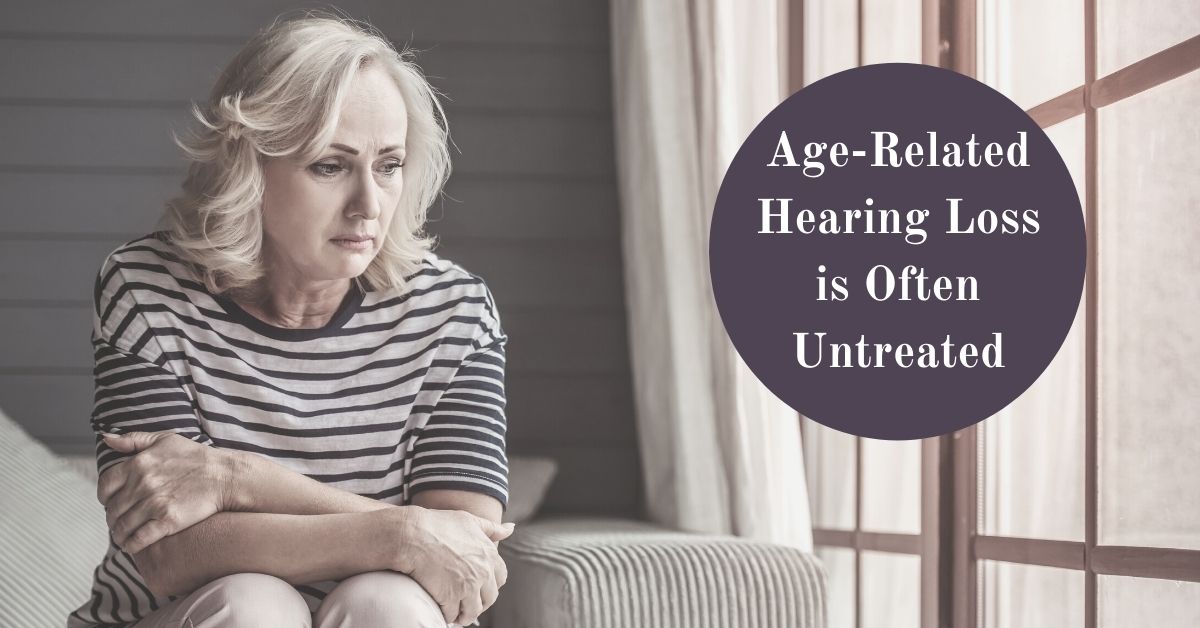- Common Hearing Aid Problems & How to Fix Them - June 14, 2021
- Why People Avoid Treating Hearing Loss — and Why You Should Schedule a Hearing Test! - May 21, 2021
- Common Hearing Aid Problems & How to Fix Them - May 14, 2021
Age related hearing loss is the most common cause of hearing impairment affecting 1 in 3 people over the age of 65 and half of those over 75. Hearing aids can be a huge help in allowing people with hearing loss to communicate more clearly.
However, only 20 % of people who could benefit from hearing aids actually use them. The importance of knowing how to recognize and accept your hearing disability as you age, has far reaching effects.
Hearing loss is difficult to recognize and admit
Hearing loss develops gradually over time. You may not notice your hearing ability decreasing at all. The sounds of chirping birds or the gentle sound of the leaves rustling in the wind may just slip away without you even noticing.
Hearing loss can often progress until you struggle to hear in the most quiet of settings. It is often certain sounds that become distorted, or tones that become unintelligible first, adding subtle hurdles to communication. As these symptoms progress your ability to communicate becomes more and more of a challenge.
Stigmas of hearing loss
It can be tempting to ignore struggles with communication and symptoms of hearing loss. Many would like to believe that it is the speaker’s fault for not speaking clearly. Others are simply in denial they have a problem at all.
Hearing loss is not only a benchmark of old age but many consider a sign of weakness they are not ready to admit. With the prevalence of hearing loss, it is important to be open to the probability that you may have developed hearing loss especially as you age.
While it may feel like a sign of weakness to admit you have a hearing loss, it can actually be a sign and source of strength to admit you have a problem and seek assistance. Admitting you have a problem can allow you to succeed in social situations again.
Today’s hearing aids are more advanced than the large clunky hearing aids your parents might have worn, offering discreet sleek styles that make hearing easier than ever.
The dangers of untreated hearing loss in seniors
Despite the advancements in hearing aids, sadly fewer than 1 in 5 people deal with age-related hearing loss. This is alarming not only because it is a communication issue but also these communication issues affect almost all issues of overall mental, emotional and physical health.
When you avoid dealing with your hearing loss your relationships with the people closest to you become strained. You may even be tempted to opt out of social situations where conversation is hard to follow. It is common for people with untreated hearing loss to withdrawal, leading to depression, anxiety, insomnia and to self-isolate.
This is particularly dangerous for seniors, in which health risks connected to loneliness can have a more serious impact. It is important for seniors to stay social as this stimulates the brain and allows them to stay engaged. When the brain is not stimulated regularly due to decreased sounds and social interaction, the brain can atrophy, putting us at a higher risk for developing dementia.
Untreated hearing loss has also been connected to an increased risk of falls, accidents and hospitalizations even leading to death, due to less special awareness and a decreased sense of balance.
How hearing aids can help
While there is currently no way to reverse the effects of hearing loss, hearing aids can amplify the sounds and tones you struggle with making communication and spatial awareness much easier to navigate.
You will be able to hear the people around you allowing you to keep up relationships with the people close to you and even continue to develop new relationships that will help keep you vital. You will feel more confident out in the world and moving about, allowing you to stay active and physically active.
Hearing aids of today continue to introduce innovative technology which can make it easier to hear in noisy environments, track your heart rate, adapt to various listening situations and connect to your Smartphone for greater accessibility.
Invest in your future
When you take the leap to deal with your hearing loss you are investing in the future of your health. Don’t let the stigma of hearing loss keep you from the people and things you love most!

